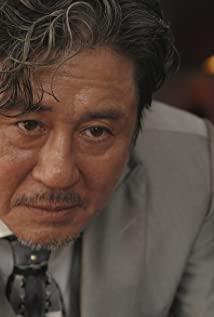Korea Overseas Chinese around 20,000 people, mainly in Seoul, Busan, Incheon, Daegu and other places; more than 95 percent of the native of Shandong, which Wendeng, Rongcheng, Muping, Fukuyama, Shouguang membership as much.
Although the number of overseas Chinese in South Korea is not large, they have formed a distinctive group due to their special historical, geographical and human factors. Although a large number of overseas Chinese have emigrated to South Korea for more than a century, more than 90% of South Korea has not yet joined the Korean nationality and still maintains the status of overseas Chinese; China and South Korea are separated by a narrow strip of water, and the two countries have established diplomatic relations for 12 years, but 99% of Korean overseas Chinese still hold Taiwan. passport". This article mainly analyzes the peculiarities of the above two points and their causes.
1. A typical overseas Chinese society
Before World War II, the main body of the overseas Chinese society was overseas Chinese. After the Second World War, many countries changed their past policy of rejecting overseas Chinese to choose local nationality, and welcomed overseas Chinese to naturalize as citizens of that country. Especially after the 1970s, taking roots gradually became a trend. In some countries where there are more overseas Chinese in the world, such as Indonesia, Thailand, Malaysia, the United States, Canada, the Philippines, etc., most overseas Chinese have joined the country of residence in order to adapt to changes in the situation and better survive and develop in the country of residence. As foreign Chinese, most of their descendants choose to join the nationality of their country of residence. Today, more than 90% of the 30 million overseas Chinese in the world have become foreign Chinese. The overseas Chinese society in most countries has transitioned to the overseas Chinese society. However, in South Korea, most overseas Chinese still maintain their status as overseas Chinese, and few have become Korean citizens.
(1) Status of Overseas Chinese in
South Korea According to statistics from the Exit-Entry Administration Office of the Ministry of Justice of South Korea, as of June 2004, there are more than 23,000 overseas Chinese in South Korea, of which overseas Chinese account for more than 90%. According to statistics from Professor Han Kyu-hwan of Hallim University in South Korea, only 3.2% of South Korean overseas Chinese under the age of 18 joined Korean nationality, while only 10.7% of adults joined Korean nationality.
From a historical point of view, the attitude of overseas Chinese in South Korea has changed from "unwilling" to "cannot" to "unwilling" on the issue of naturalization of South Korea.
The overseas Chinese who went to South Korea at the end of the Qing Dynasty regarded themselves as citizens of the "suzerain state", while South Korea was only a "vassal state." This sense of superiority is particularly evident in the first generation of immigrants and overseas Chinese born in Korea before the 1950s. At that time, their mentality was naturally not willing to become a Korean citizen.
In 1952, the Korean War broke out. For reasons known to all, after the war, China did not recognize the status of overseas Chinese in South Korea (then called "South Korea"), and they were also excluded in South Korea. From the 1960s to the end of the Cold War, South Korea issued a series of laws discriminating against foreigners, making it difficult for Korean overseas Chinese to survive and develop in South Korea. Because it is difficult to develop in South Korea, many overseas Chinese have to leave South Korea and go to the United States or Taiwan to develop. Overseas Chinese living in South Korea are difficult to acquire Korean nationality due to restrictions imposed by South Korea’s strict controls on the naturalization of foreigners. Only some overseas Chinese who are engaged in real estate business have made every effort to acquire Korean nationality for the sake of economic development in order to purchase more land.
After the establishment of diplomatic relations between China and South Korea in 1992, cultural and economic exchanges between China and South Korea have become more frequent, and the relations between the two countries have improved day by day. Some discriminatory laws and regulations against overseas Chinese have been gradually cancelled, and it is not very difficult to become a Korean citizen. According to the "Law on Foreigners' Acquisition and Management of Land" revised and implemented in South Korea in 1994, overseas Chinese born in South Korea in 1992 and after can choose to become Korean citizens at the age of 18; Korean men marry overseas Chinese women, and their children It is also possible to obtain Korean nationality naturally (South Korea implements the patrilineal nationality law). However, there are only a handful of overseas Chinese who have joined Korean nationality.
(2) Reasons for maintaining overseas Chinese status
Although Korean overseas Chinese have emigrated to South Korea in large numbers for more than a century, more than 90% of them still maintain their overseas Chinese status. Investigating the reasons, there are divergent opinions among experts in the overseas Chinese community in South Korea and overseas Chinese in South Korea. In summary, there are mainly the following aspects:
First, strong national sentiments and national superiority. Korean overseas Chinese insist on retaining Chinese nationality, first of all, because of their strong national sentiment and sense of national superiority. The early overseas Chinese in South Korea considered themselves to be citizens of the "suzerain state", while South Korea was only a "vassal state." This sense of superiority has always been rooted in the hearts of overseas Chinese in South Korea. Li Yongxiang, president of the National Association of Korean and Chinese Friendship in the United States, said at the "2002 Overseas Chinese in South Korea Entrepreneurship Conference": "In the United States, people often mistakenly call us Koreans. We must correct them. Koreans refer to Koreans. We are overseas Chinese. It’s Hanwha, we’re upright Chinese!” An overseas Chinese in South Korea said: “The famous place of interest for Koreans, Gyeongbokgung, is nothing compared to the Forbidden City in China. In Korea, almost There is no historical heritage to be proud of..." It can be seen that concepts like "Greater China" and "Little Korea" still exist.
The second is to facilitate contact with China. The relationship between Korean overseas Chinese and mainland China and Taiwan is inextricably linked. Many overseas Chinese have investments or relatives in the mainland and Taiwan, and they often travel between South Korea and China. Only the staff of the overseas Chinese associations in South Korea have an average of at least 2 visits to China and South Korea a year. Times or more. For them, it is more convenient to retain Chinese nationality (holding a Chinese or Taiwanese "passport").
Third, there is not a strong sense of belonging to South Korea. Overseas Chinese in South Korea generally do not have a strong sense of belonging to South Korea, and many have immigrated to the United States, Taiwan, or Australia. Most of the overseas Chinese who stayed in Korea, whether they are the older or the new generation born in Korea, have not integrated into the Korean society and have a weak sense of belonging to Korea.
The older overseas Chinese in South Korea generally have the idea of "returning to the roots of fallen leaves", hoping to return to China when they are old. According to statistics, 43% of overseas Chinese are Chinese at home, only 21% of overseas Chinese are Korean, and the rest of the families use a mixture of the two languages. An old overseas Chinese from South Korea said meaningfully: "Korea is just a post in life. If you are tired, you have to go home."
What is even more surprising is that young overseas Chinese have a weaker sense of belonging to South Korea. In most countries, the integration of the new generation is better. Regardless of language, living habits, ethics, and circle of friends, to a large extent are affected by the country where you live. But the new generation of overseas Chinese in South Korea is a special case. Statistics show that 44.6% of Korean adult overseas Chinese want to stay in Korea for a long time, and 27.8% of young people intend to live in Korea for a long time. Among young overseas Chinese in South Korea, only 6.9% have Korean friends, while 81.9% have Chinese friends. It can be seen that young overseas Chinese in Korea have few Korean friends, and their desire to live in Korea for a long time is not strong. The key reason for this phenomenon is that the new generation of overseas Chinese in South Korea has lived in the small circle of overseas Chinese since childhood. They do not have foreign nanny like Chinese children in Southeast Asia, nor do they enter kindergartens run by locals since childhood like Chinese children in Europe and America. In South Korea, overseas Chinese education is carried out in their own circles almost from beginning to end. When they were young, they attended the Overseas Chinese Kindergarten, then the Overseas Chinese Elementary School, and then the Overseas Chinese Middle School. Even after going to university, most of them used to study in Taiwan. There are few opportunities to interact with Koreans, and the integration situation is naturally average. They often feel hesitated about the future. A young overseas Chinese tour guide said: “Living in Korea, I often don’t know how I should go in the future. In the future, I may go to the United States or China. Even if I stay in Korea, my children will be sent to them in the future. The United States or China."
Fourth, the needs of children's education. Most overseas Chinese in South Korea want their children to enter overseas Chinese schools and learn Chinese. According to the regulations of the Ministry of Education of South Korea, only foreign citizens can enter the school for foreigners. For this reason, many overseas Chinese hope that their children retain Chinese nationality in order to enter overseas Chinese schools. In addition, overseas Chinese high school graduates are also given some care for college entrance examinations. Basically every university has a certain number of special admissions for overseas Chinese students. They do not need to participate in the unified examination, but only need to participate in the interview organized by each school. Since there are few overseas Chinese graduates every year, there is not much competition and it is relatively easy to enter the university.
Fifth, the unique characteristics of Shandong people. More than 95% of overseas Chinese in South Korea are from Shandong. The overseas Chinese in South Korea, whether they are from Hubei or Guangdong, are finally imprinted with a deep Shandong mark. Regarding the cultural characteristics of Shandong people, some scholars have summarized them as follows: emphasis on righteousness, light on profit, stubbornness, and boldness. Although the eight-character generalization is difficult to tell the whole story, it is also incisive. The characteristics of Shandong people are vividly reflected in Korean overseas Chinese. This kind of personality is likely to lead to the situation of Korean overseas Chinese "getting more healthy and getting more mature", and it is easy to form a "small circle". Therefore, they are generally more willing to associate with overseas Chinese and maintain their overseas Chinese status more persistently.
Sixth, the requirements for applying for naturalization in South Korea are harsh. In the past, to apply for Korean citizenship, one must have made contributions, be proficient in Korean, have a high degree of education, and have a high income. After being recommended by two civil servants at or above the deputy section chief (equivalent to our country’s sub-section level), it will take one year of inspection. Therefore, it is very difficult for overseas Chinese to choose to join the local nationality. South Korea implements a patrilineal nationality policy. Since the overseas Chinese society is relatively closed, few overseas Chinese women marry Koreans, so not many people can become naturalized. After the establishment of diplomatic relations between China and South Korea in 1992, the South Korean government gradually relaxed the conditions for naturalization of overseas Chinese, but still stipulated that only those who were born locally and were over 18 years old can apply for naturalization. Therefore, it is still difficult for the first generation of overseas Chinese born in China to become naturalized. It is not difficult for the new generation of overseas Chinese born in South Korea to join the Korean nationality after reaching the age of 18. However, due to the five reasons mentioned above, few are really willing to join the Korean nationality.
(3) The development trend of Korean overseas Chinese society. Overseas Chinese
living in South Korea are always in contact with Korean culture and communicate with it consciously or unconsciously. From the perspective of the development history of Chinese and foreign civilizations, cultural exchanges and dissemination follow the "principle of advantage diffusion", and high-level culture has an irresistible temptation to low-level culture.
Since the 1970s, South Korea has grown rapidly in terms of economy and has become the country with the strongest power in the Four Little Dragons in Asia. The living standards of South Koreans have rapidly improved and their cultural patterns have changed with each passing day. The influence of Korean society on the overseas Chinese in Korea is increasing. In the 1990s, many new generations of overseas Chinese entered Korean universities to receive Korean education after graduating from high school. Korean ideology had a great influence on the cultural habits and concepts of overseas Chinese. The consciousness of "suzerain state" and the superiority of the Chinese have gradually disappeared among overseas Chinese in South Korea, while changes in diet, living habits, clothing, entertainment methods, and the consciousness of the motherland are also taking place.
With the gradual improvement of the education level of overseas Chinese in South Korea and the gradual adaptation to the local environment, under South Korea's increasingly loose foreign policy, the overseas Chinese in South Korea will gradually integrate into the mainstream society.
2. Patriotic overseas Chinese holding Taiwanese "passports"
(1) Korean overseas Chinese firmly support the peaceful reunification of the motherland, but most of them hold Taiwanese "passports."
According to statistics, about 99% of Korean overseas Chinese hold Taiwanese "passports". Korean overseas Chinese have close ties with Taiwan. Taiwan has a "Taipei Representative Office" in Seoul (Seoul), the capital of South Korea, and offices in major cities. However, the overseas Chinese in South Korea have a firm stand on the issue of the reunification of the motherland. They strongly oppose the "Taiwan independence" line and support peaceful reunification.
Overseas Chinese in South Korea established two anti-independence associations in 2002, the "Hanwha China Association for the Promotion of Peaceful Reunification" and the "Korean Diaspora Association", working together with overseas Chinese around the world to promote cross-strait reunification. Mr. Han Shenghao, president of the Hanwha China Association for the Promotion of Peaceful Reunification, severely condemned the "Taiwan independence" line pursued by Lee Teng-hui and Chen Shui-bian in many public speeches, and expressed his strong desire to realize the peaceful reunification of the motherland as soon as possible. Mr. Yang, the consultant of the Incheon Overseas Chinese Association, said bluntly: "In Korea, there is no soil for'Taiwan independence'!" Mr. Yang, the former president of the Seoul Overseas Chinese Association, the largest overseas Chinese association in South Korea, said bluntly: "Chinese people all over the world will not accept the separatist proposition of'Taiwan independence'. And it is firmly opposed."
(2) The reason for holding Taiwan's "passport"
Since Korean overseas Chinese firmly support the peaceful reunification of the motherland, why do they still hold Taiwan's "passport"?
The first is historical reasons. After the Korean War, China broke off diplomatic relations with South Korea, and the "overseas relations" were hit during the "Cultural Revolution". The contact between overseas Chinese in South Korea and China was almost completely interrupted before the end of the Cold War. At this time, the Taiwan authorities set up a representative office in South Korea, and most of the overseas Chinese in South Korea obtained Taiwan "passports" in order to survive.
The second is the emotional factor. The overseas Chinese in South Korea have a lot of ties with Taiwan and their relationship is deep. After the end of the Cold War, China and South Korea established diplomatic relations, and overseas Chinese have increasingly connected with mainland China. However, in the 30 years prior to this, Korean overseas Chinese had almost only dealt with Taiwan, and their economic cooperation and cultural exchanges with Taiwan were very close. Almost all overseas Chinese families have people studying in Taiwan, and now the majority of the backbone of overseas Chinese associations have Taiwanese education backgrounds, and many people are still investing in Taiwan and even establishing families in Taiwan.
The third is the practical factor, even for business activities and family visits. Since many overseas Chinese in South Korea have business or relatives in Taiwan, it is convenient for them to hold Taiwanese "passports." In addition, Taiwan’s “passport” can be granted visa exemption from some countries, so it is convenient for business activities and family visits. From a practical point of view, most overseas Chinese do not want to change their passports for the time being.
The fourth is economic reasons, that is, the Taiwan authorities have given more care and economic support to overseas Chinese in South Korea. The activities of the Taiwan Representative Office in South Korea have never stopped. Taiwan has always provided financial assistance to overseas Chinese institutions and overseas Chinese schools in South Korea, not only providing teaching materials and funds, and training teachers for them, but also regularly organizing overseas Chinese teachers and students from South Korea to visit Taiwan.
Although the status of overseas Chinese in South Korea is unique, they have long firmly supported the peaceful reunification of the motherland and are an inseparable part of the big family of the Chinese nation.
View more about New World reviews










